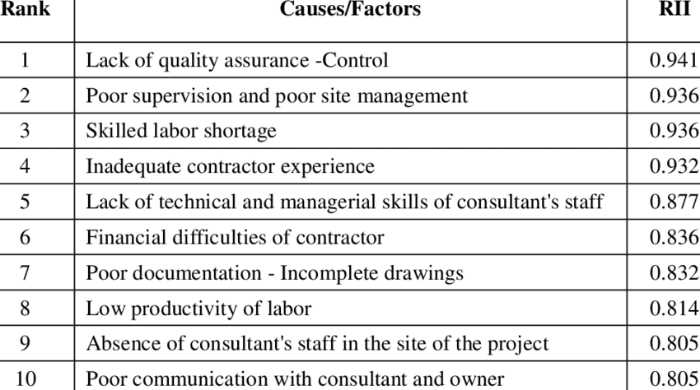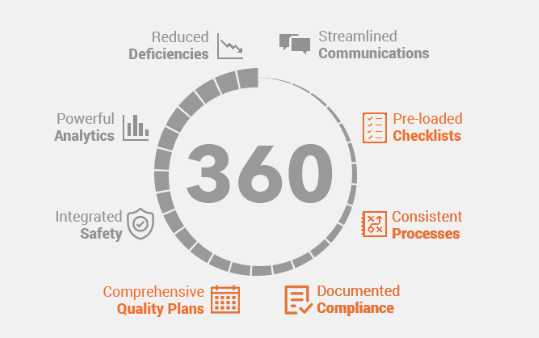
In any construction project, quality management is a critical component of risk management. Quality management (QM) professionals are responsible for quality control and quality assurance – essentially ensuring that all products, materials, and processes used in the project meet the required standards. To do this effectively, they need to use quality management software tools.
This blog post will discuss how quality management software can improve productivity for quality managers in construction projects.
What Is Quality Management Software (QMS)?
First, let's put a bit more meat on the meaning of quality management software. Quality management is a method to measure and enhance the quality of products and services. It therefore logically that QMS is an application or set of applications that aid quality professionals in managing quality across all phases of a project – from conception to construction until delivery.
Numerous studies have consistently demonstrated that the lack of a proper quality assurance system is the leading cause of poor project quality in construction.

(Image source: Researchgate.net)
Benefits of Quality Management Software
While each project will have different needs, below are some key benefits that all quality managers will enjoy once they start using a QMS.
-
Scale: With QMS, you can quickly and easily scale up your quality program. This is essential when working on a large construction project with many different parts and stages. You can proactively control your quality inspections and satisfy project stakeholders and consumers. Most project deficiencies are known, so they can be anticipated and then quickly fixed. The result is a dramatic improvement in customer satisfaction as well as increasing operational efficiency.
-
Processes: QMS software allows you to focus on the task at hand by automating quality control processes. You can develop standard workflows for specific tasks and ensure that all team members follow them. This consistency in processes increases efficiency and consistency across the project, minimizing errors and improving quality overall.
-
Accountability: With QMS in place, you can track performance metrics for individuals and teams. This helps identify areas of improvement and holds team members accountable for meeting quality goals.
-
Credibility: A successful quality program will result in increased credibility with stakeholders. QMS provides documented evidence of your commitment to quality and demonstrates your ability to meet industry standards and regulatory compliance.
Common Features of Quality Management System
QMS software applications come with different quality management features. However, a good enterprise quality management software will have the following basic features:
-
Automated Quality Communication Workflows: A quality management platform helps you streamline communications by automatically sharing documented issues with relevant project stakeholders. Central storage of multiple deficiencies—fully documented with photographs, notes, and reason codes—can further enhance productivity.
-
Automated Deficiency Alerts and Exception Reports: You can configure the system to generate deficiency alerts and exception reports automatically with QMS. You can also set up email notifications for specific quality events, such as when a product or material fails a quality inspection.
-
Document Management: A QMS also provides document management by storing all quality-related documents in a secure online repository. This allows authorized users to access them from any computer or mobile device with an internet connection.
-
Professional-grade Inspection Reports: QMS provides professional-grade inspection reports that are easy to understand and meet all applicable regulatory requirements. In addition, pre-loaded checklists ensure that all required steps are taken during an inspection and help avoid missed items.
-
Safety Compliance Records and Safety Reporting Framework: A safety compliance record is essential in any construction project, especially those with high-risk activities. The QMS should provide a comprehensive framework for capturing safety data, including near misses, injuries, property damage, and other safety issues. Quality managers can use this information to analyze quality trends and increase quality over time.
-
Powerful Analytics: QMS enables you to track quality metrics in real-time, including quality pass rate, failure rate by inspection type, team performance, issue categories, and more. This allows you to pinpoint problem areas quickly and take corrective and preventive actions.
Getting Started with FTQ360 Quality Management Software
FTQ360 quality management system software is a powerful tool that helps construction companies manage their quality processes more efficiently and effectively than ever before. As the name suggests, FTQ360 takes a 360-degree view of your quality program that includes:
-
Pre-loaded Checklists: FTQ360 QMS has over 300+ quality checklist templates that you can easily customize to meet your project requirements.
-
Consistent Processes: FTQ360 helps standardize workflows for specific tasks and ensures that all team members follow the same processes. This reduces quality problems and enhances team productivity.
-
Documented Compliance: FTQ360 QMS software solution provides documented evidence of your commitment to quality and demonstrates your ability to meet compliance expectations.
-
Comprehensive Quality Plans: FTQ360 QMS allows you to develop comprehensive quality plans covering all aspects of your quality program. This includes supplier management and all other quality management data.
-
Integrated Safety: FTQ360 integrates quality and safety, providing a holistic view of quality trends and problem areas across your entire organization.
-
Powerful Analytics: Use reports generated by the quality management system to measure the performance of your teams and identify quality improvement opportunities.
-
Reduced Deficiencies: With FTQ360, you will reduce deficiencies and increase productivity on your next project.
-
Streamlined Communications: Automated deficiency alerts and exception reports help keep everyone informed of quality events in real-time, improving communication across all project stakeholders.

FTQ360 is the complete quality solution for construction companies of all sizes and is a cut above all other quality management systems. The tool is also available for other industries such as the oil and gas industry.
It helps you streamline your quality processes, improve safety compliance, and improve the productivity of your teams. Try FTQ360 today and see the difference QMS can make on your next project.



